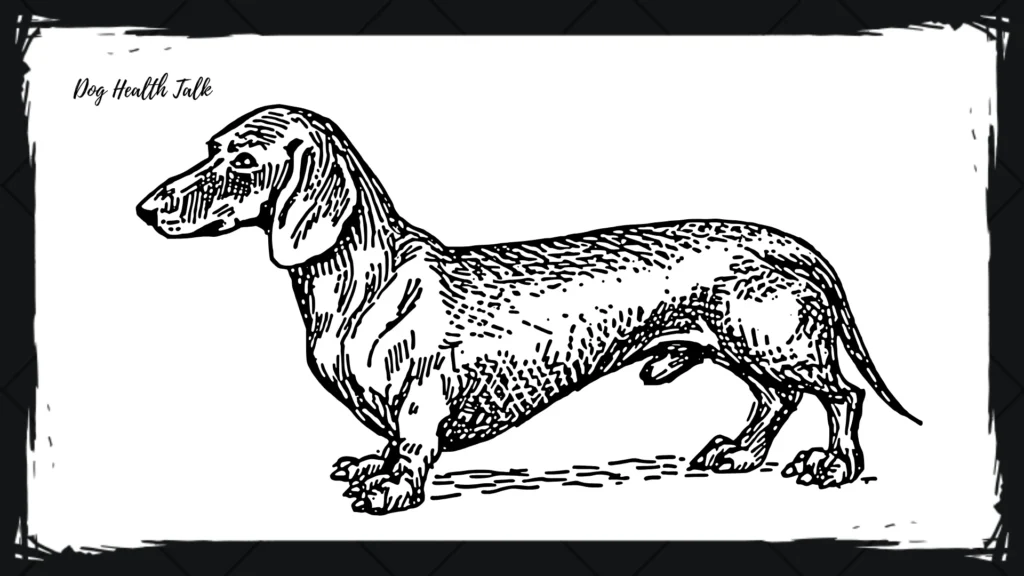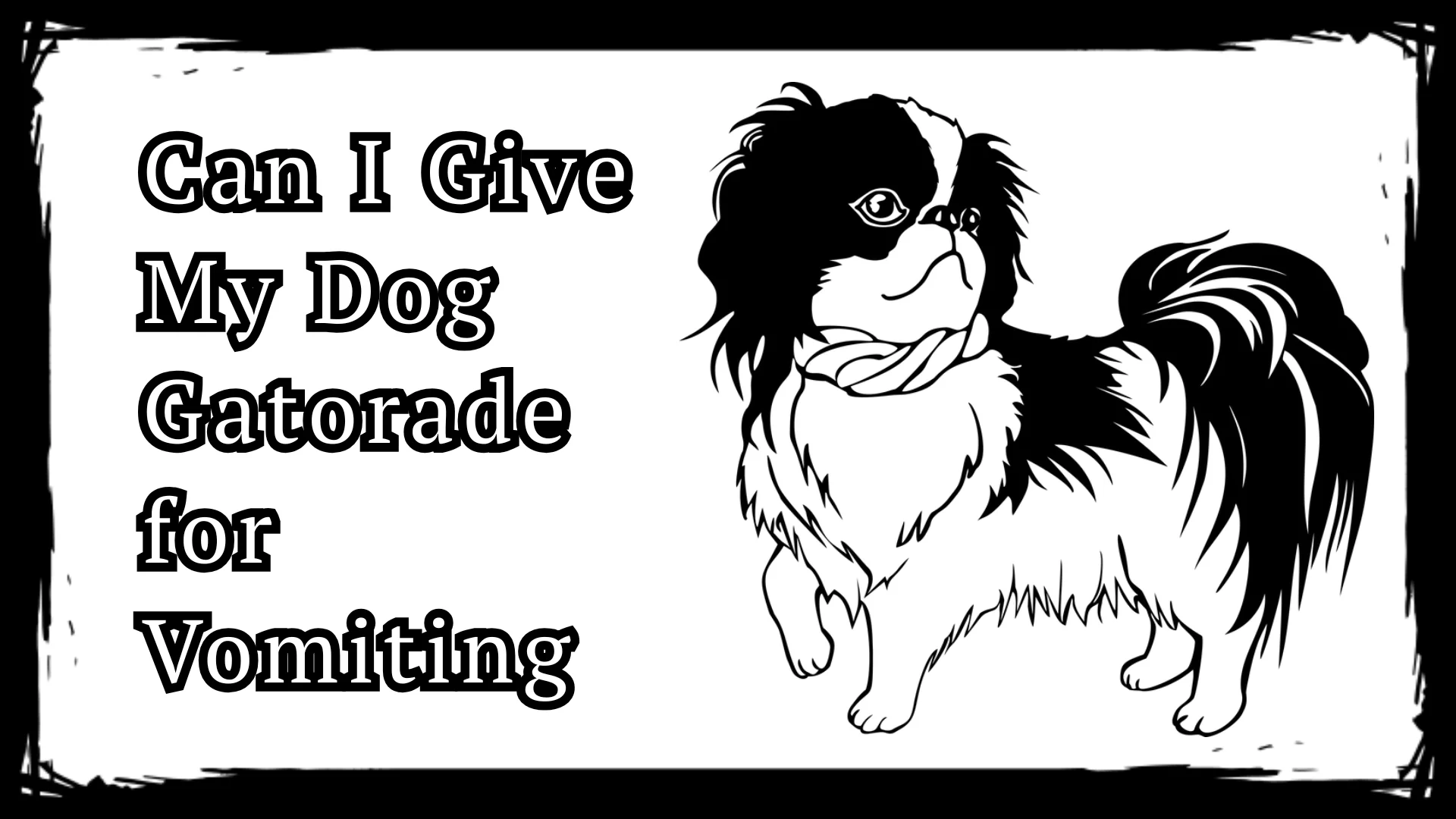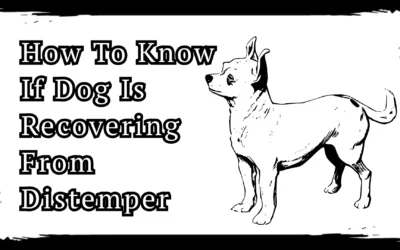Can I give my dog Gatorade for vomiting? Vomiting in dogs can lead to dehydration and electrolyte imbalances, making pet owners consider various hydration solutions.
Gatorade is not recommended for dogs vomiting, as it’s not formulated for pets. Instead, offer 1 tablespoon of clear, unflavored Gatorade, water, or Pedialyte every hour.
This comprehensive guide will explore whether Gatorade is appropriate for dogs experiencing vomiting and provide you with safer alternatives to keep your pet healthy.
What Is Gatorade?
Gatorade is a popular sports drink designed to replenish electrolytes and fluids lost during intense physical activity. Created in 1965 for the University of Florida Gators football team, this beverage contains water, electrolytes like sodium and potassium, and carbohydrates in the form of sugars.
The drink’s primary purpose is to restore the body’s electrolyte balance and provide quick energy through simple sugars. For humans, engaging in prolonged exercise or sweating heavily, Gatorade can effectively prevent dehydration and maintain performance levels.
However, the formulation that works well for human athletes may not be suitable for dogs. The sugar content, artificial additives, and specific electrolyte concentrations in Gatorade are tailored to human physiology, not canine needs.
Is Gatorade Bad for Dogs?
While Gatorade isn’t necessarily toxic to dogs in small amounts, it’s not recommended as a treatment for vomiting or dehydration. Several factors make Gatorade problematic for canine consumption.
The high sugar content in Gatorade can upset your dog’s digestive system, potentially increasing vomiting or diarrhea. Dogs process sugars differently from humans, and excessive sugar intake can lead to gastrointestinal distress, obesity, and dental problems over time.
Many Gatorade varieties contain artificial sweeteners, colors, and flavoring agents that offer no nutritional benefit to dogs and may cause adverse reactions. Some artificial sweeteners, particularly xylitol, are extremely dangerous for dogs and can cause life-threatening hypoglycemia.
The sodium levels in Gatorade are also concerning for dogs, especially smaller breeds. Too much sodium can lead to sodium ion poisoning, causing symptoms like vomiting, diarrhea, lethargy, and in severe cases, seizures or coma.
What Can Dogs Drink Besides Water?
Water remains the best and safest option for dogs. However, when your pet is vomiting and needs additional support, several dog-safe alternatives can help maintain hydration and electrolyte balance.
- Bone broth made specifically for dogs provides hydration along with beneficial nutrients. Ensure the broth is low in sodium and doesn’t contain onions, garlic, or other ingredients toxic to dogs.
- Pedialyte, an electrolyte solution designed for children, is often considered safer than Gatorade for dogs when used appropriately. However, it should only be given under veterinary guidance and in proper dilutions.
- Coconut water, when pure and unsweetened, can provide natural electrolytes. However, it should be given sparingly due to its potassium content, which can be problematic for dogs with kidney issues.
How To Keep a Dog Hydrated

Maintaining proper hydration in a vomiting dog requires careful attention and often veterinary intervention. The goal is to replace lost fluids without overwhelming the digestive system.
Offer small amounts of water frequently rather than allowing your dog to drink large quantities at once. Too much water consumed rapidly can trigger more vomiting, creating a cycle of dehydration.
Ice chips can be helpful for some dogs, as they provide hydration while being consumed slowly. The cold temperature may also help soothe an irritated stomach.
Monitor your dog’s hydration status by checking their gums, which should be moist and pink, and performing the skin tent test. Gently pinch the skin on the back of their neck; it should return to its normal position quickly in a well-hydrated dog.
If your dog continues vomiting and shows signs of dehydration like lethargy, dry gums, or sunken eyes, veterinary care is essential. Professional fluid therapy may be necessary to restore proper hydration levels safely.
Read More: How Much Baby Aspirin Can I Give My Dog
How to Handle An Upset Stomach
Pepto Bismol
Many pet owners consider giving their dogs Pepto Bismol for upset stomachs, but this human medication isn’t always safe for canines. Pepto Bismol contains bismuth subsalicylate, which can be toxic to dogs, especially those allergic to aspirin.
The medication can also interfere with certain diagnostic tests and may mask symptoms that veterinarians need to assess properly. Some dogs may experience side effects such as constipation or darkened stools.
Never give Pepto Bismol to puppies, pregnant dogs, or dogs taking other medications without veterinary approval. The dosing for dogs differs significantly from human recommendations, making professional guidance essential.
Tea
Certain herbal teas are mild relievers for dogs with upset stomachs, but they must be carefully selected and prepared. Chamomile tea, when cooled and offered in small amounts, may have gentle soothing properties.
Ginger tea, in very diluted forms, might help with nausea, but it should be used sparingly and only under veterinary guidance. The concentration must be much weaker than what humans typically consume.
Avoid teas containing caffeine, which is toxic to dogs. Black tea, green tea, and many herbal blends contain compounds that can be harmful to canines.
Always let tea cool completely before offering it to your dog, and introduce any new liquid gradually to monitor for adverse reactions.
Bone Broth
Bone broth can be an excellent hydration aid for dogs experiencing vomiting episodes. The warm, flavorful liquid often appeals to dogs who might be reluctant to drink plain water.
Choose or prepare bone broth specifically designed for dogs, avoiding products with excessive sodium, onions, garlic, or other harmful ingredients. Many commercial pet stores offer dog-safe bone broth options.
The nutrients in quality bone broth can provide gentle nourishment while supporting hydration. The collagen and minerals may also support digestive health.
Serve bone broth at room temperature or slightly warm, never hot. Start with small amounts to ensure your dog tolerates it well before offering larger quantities.
Gatorade
Returning to the original question about Gatorade, the consensus among veterinarians is that it’s not the best choice for dogs experiencing vomiting. The risks generally outweigh any potential benefits.
The artificial ingredients and high sugar content can worsen digestive upset rather than providing relief. Additionally, the electrolyte balance in Gatorade is formulated for human needs, not canine physiology.
If you’re concerned about electrolyte replacement in your vomiting dog, veterinary-approved solutions or professional fluid therapy are much safer and more effective options.
Focus on proven methods such as small amounts of water, veterinary-recommended electrolyte solutions, or professional medical intervention for persistent vomiting episodes.
Can I Give My Dog Gatorade For Vomiting Yellow
Yellow vomit in dogs often indicates bile, suggesting an empty stomach or more serious digestive issues. In these cases, Gatorade is particularly inappropriate as it may further irritate the digestive system.
Bile vomiting requires different management strategies, often including feeding smaller, more frequent meals and addressing underlying causes. The sugar and additives in Gatorade could exacerbate bile production and stomach irritation.
If your dog is vomiting yellow bile regularly, it warrants veterinary evaluation to rule out conditions such as gastritis, pancreatitis, or intestinal blockages.
Plain water and veterinary-approved treatments are much more appropriate for managing bile vomiting than sports drinks designed for humans.
What Kind Of Gatorade Can I Give My Dog
No type of Gatorade is recommended for dogs experiencing vomiting. Even varieties marketed as “natural” or with reduced sugar still contain ingredients that aren’t optimal for canine digestive systems.
Sugar-free versions may contain artificial sweeteners like xylitol, which are extremely toxic to dogs and can cause life-threatening drops in blood sugar levels.
The electrolyte concentrations in all Gatorade varieties are formulated for human athletes, not for dogs recovering from illness or dehydration.
Instead of searching for the “right” type of Gatorade, focus on dog-appropriate hydration solutions recommended by veterinary professionals.
Can I Give My Dog Gatorade For Parvo
Parvovirus is a serious, potentially fatal condition requiring immediate veterinary care and professional fluid therapy. Gatorade is completely inappropriate for dogs with parvo and could potentially worsen their condition.
Dogs with parvo experience severe vomiting and diarrhea, leading to rapid dehydration and electrolyte imbalances that require precise medical management. Home remedies like Gatorade can delay proper treatment and reduce survival chances.
Professional veterinary care includes IV fluid therapy, anti-nausea medications, and careful monitoring of electrolyte levels. These interventions are specifically designed for canine physiology and the severity of parvo symptoms.
Never attempt to treat parvo at home with human sports drinks or other home remedies. Immediate veterinary intervention is crucial for the best possible outcome.
Also Read: How Do You Know If Your Dog Has Parvo
What Can I Give My Dog To Stop Vomiting White Foam
White foam vomiting often indicates an empty stomach with gastric juices or can signal more serious conditions. Gatorade does not address the underlying causes and may worsen the situation.
For occasional white foam vomiting, withholding food for 12-24 hours while maintaining water often helps. Gradually reintroducing bland foods can support digestive recovery.
If white foam vomiting persists or occurs frequently, veterinary evaluation is necessary to rule out conditions like gastritis, acid reflux, or more serious gastrointestinal issues.
Anti-nausea medications prescribed by veterinarians are much more effective than home remedies for persistent vomiting episodes.
Can Dogs Have Gatorade Zero
Gatorade Zero and other sugar-free sports drinks pose even greater risks to dogs than regular versions. These products often contain artificial sweeteners that can be toxic to canines.
Xylitol, commonly found in sugar-free products, causes rapid insulin release in dogs, leading to severe hypoglycemia that can be fatal within hours of consumption.
Even if Gatorade Zero doesn’t contain xylitol, other artificial sweeteners and additives offer no benefits to dogs and may cause digestive upset or other adverse reactions.
The “zero sugar” label doesn’t make these products safer for dogs; in many cases, it is more dangerous due to artificial sweetener content.
Can Dogs Drink Gatorade Or Pedialyte
Between Gatorade and Pedialyte, veterinarians generally consider Pedialyte the safer option for dogs when it is used properly diluted and under professional guidance. However, neither is ideal for routine use.
Pedialyte is formulated for children and contains fewer additives and artificial ingredients than Gatorade. The electrolyte balance is also closer to what might be appropriate for dogs in certain situations.
Both products should only be considered under veterinary supervision and typically require dilution before giving to dogs. The dosage and frequency must be carefully calculated based on the dog’s size and condition.
Plain water remains the safest hydration option for most situations, with veterinary-approved electrolyte solutions being the preferred choice when additional support is needed.
Can Dogs Drink Pedialyte
Pedialyte can be given to dogs in specific circumstances, but it requires veterinary guidance for proper use. The unflavored variety is generally preferred to avoid artificial flavoring that might upset sensitive stomachs.
Proper dilution is crucial when giving Pedialyte to dogs. The solution is typically diluted with an equal water to reduce the concentration of electrolytes to appropriate levels for canines.
Only use Pedialyte as a short-term intervention while seeking veterinary care for persistent vomiting or dehydration. It’s not a substitute for professional medical treatment.
Monitor your dog closely when introducing Pedialyte, watching for any signs of worsening symptoms or adverse reactions to the new liquid.
Pedialyte For Dogs
When used appropriately, Pedialyte can provide temporary electrolyte support for dogs experiencing mild dehydration from vomiting or diarrhea. However, it should never replace veterinary care for serious conditions.
The unflavored version is safest, as flavored varieties may contain ingredients that could upset your dog’s stomach. Always check the ingredient list for xylitol or other harmful additives.
Typical recommendations involve diluting Pedialyte 50/50 with water and offering small amounts frequently rather than large quantities at once.
Use Pedialyte only as a bridge to veterinary care, not as a long-term solution for ongoing digestive issues or dehydration.
Must Read: Is Dog Vomiting Blood An Emergency
Can Dogs Have Gatorade For Dehydration
Gatorade is not recommended for treating dehydration in dogs, regardless of the underlying cause. Common causes of dehydration in dogs include illness, heat exposure, or not drinking enough water. An evaluation by a veterinarian is necessary to select the right treatment approach.
Signs of dehydration may include:
- Lethargy
- Dry or sticky gums
- Loss of skin elasticity
- Reduced urination
FAQs
What Can Dogs Drink For Vomiting?
Dogs can drink plain water, unflavored Pedialyte, or ice chips. These help soothe the stomach and replace lost fluids without upsetting digestion.
Is It Safe To Give Dogs Gatorade?
Gatorade is not toxic, but it’s not ideal. It contains sugar and additives. A better option is unflavored Pedialyte or a homemade electrolyte solution.
How To Hydrate a Dog That’s Vomiting?
Offer small sips of water or unflavored Pedialyte. Use ice cubes if needed. Hydration must be slow to avoid upsetting the stomach more.
What Flavor Gatorade Can I Give My Dog?
If required, only use unflavored or clear Gatorade in very small amounts. Flavored options may contain harmful sweeteners or colors that are unsafe for dogs.
What Is The Best Remedy For a Dog Vomiting?
Withhold food for 12 hours, then offer bland food like boiled chicken and rice. Keep the dog hydrated with water or canine electrolytes.
How To Cure a Sick Dog At Home?
Keep the dog calm, hydrated, and fed with bland foods like rice and boiled chicken. Always monitor symptoms and contact a vet if needed.
Can I Give My Dog Gatorade If He’s Sick?
In small amounts, clear Gatorade can help with minor dehydration. But it’s better to use vet-recommended electrolyte solutions or homemade, sugar-free options.
Is There a Dog Version Of Gatorade?
Yes! Products like Rebound or Pet-A-Lyte are made for dogs. They restore electrolytes safely and are better than human sports drinks like Gatorade.
How To Make Homemade Electrolytes For Dogs?
Mix 1 litre of water, 1 tablespoon of sugar, and 1 teaspoon of salt. Offer in small sips. This DIY drink helps replace lost fluids gently.
Can Dogs Drink Sprite?
No, dogs should not drink Sprite. It contains sugar, carbonation, and additives that can upset their stomach and lead to health problems.
Conclusion
In conclusion, the question “Can I give my dog Gatorade for vomiting?” reflects the natural desire to help our pets feel better quickly. However, the safest approach involves providing appropriate hydration support while seeking professional veterinary care when needed.
Water remains the best hydration option for dogs, with veterinary-approved alternatives available for specific medical situations. When your dog is vomiting, focus on proven safe methods and don’t hesitate to contact your veterinarian for guidance tailored to your pet’s specific needs.




